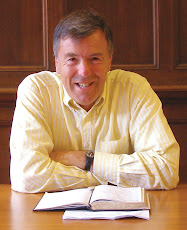There has been some debate of late as to whether humanism is a religion.
Humanism's rejection of any belief in entities and beings beyond this world would justify it not being regarded as a religion. But Humanists also see understanding the meaning of life as a central theme of their activities and philosophies – indeed this was the central theme of the British Humanist Association Annual Meeting in Manchester in June 2011.
Insofar as humanism provides a framework of meaning for living a full life on this earth and respecting the rights and potential of all living persons then it could be regarded as having ethical and religious aspects – a religion without the supernatural. Its doctrines are diverse and not standardised but it does create a community of people with similar purposes.
It does not have its own religious rituals but it does provide a valuable alternative to standard and exotic religions for those who are seeking meaning in life and/or who wish to celebrate births, marriages, partnerships and the lives of the recently dead in more secular ways without reference to supernatural entities and beliefs.
Of course, in theory there is no need to hold such rites of passage. There could just be the issuance of certificate for a birth, wedding, partnership or death. But people seem almost universally to need the performance of ceremonies to mark these significant points in the lives of the principals and their friends, relatives and communities.
It would appear that in most places at most times these ceremonies have had a religious character and involved the invocation of the supernatural. Humanism seeks to advance beyond these customary practices by offering ceremonies grounded in the earthly and not the purportedly supernatural sphere. The growing disillusion with formal religion in countries, like the UK, combined with the availability of humanist options, seems to be providing a growing market for humanist ceremonials. Such ceremonials are not of a standard kind and they are more bespoke compared to standard religious rituals. But humanists, like religions, are confronted by a need to certify that certain standards are observed by celebrants officiating at events in their name and this leads to certain tensions within humanist organisations.
The similarities of humanism with religion are also apparent in the movement’s desire to obtain equivalent standing with religions in terms of representation in state institutions and education. Scottish Humanists engage, for instance, in the Scottish Parliament’s Time for Reflection alongside religious professionals and other persons nominated by members of the Parliament. Humanists also seek to influence the content of religious and moral education in schools by joining bodies that advise state schools and local authorities on religious and moral matters.
By contrast secularism seeks simply to remove religious privileges of any sort from the public sphere in order to create a level playing field where all ideas, belief systems and organisations have to compete for the support of citizens without the advantage of state privilege and assistance.
HUMANISTS ARE FROM VENUS: SECULARISTS ARE FROM MARS!
skip to main |
skip to sidebar

Check for older posts at the bottom of the page
Analysing the current relationships between the UK state and religion and suggesting how they might be modernised.
Search This Blog
New Book
MONARCHY, RELIGION AND THE STATE:
Civil religion in the UK, Canada, Australia and the Commonwealth
By Norman Bonney,
Manchester University Press, October 2013
Advance online order deals with Amazon and Blackwells
There will be no miracles here
Scottish artist Nathan Coley translated the words used in a seventeenth century royal proclamation in a French town believed to have been the site of frequent miracles.
Dean Gallery Edinburgh
Dean Gallery Edinburgh
Related Links

Check for older posts at the bottom of the page